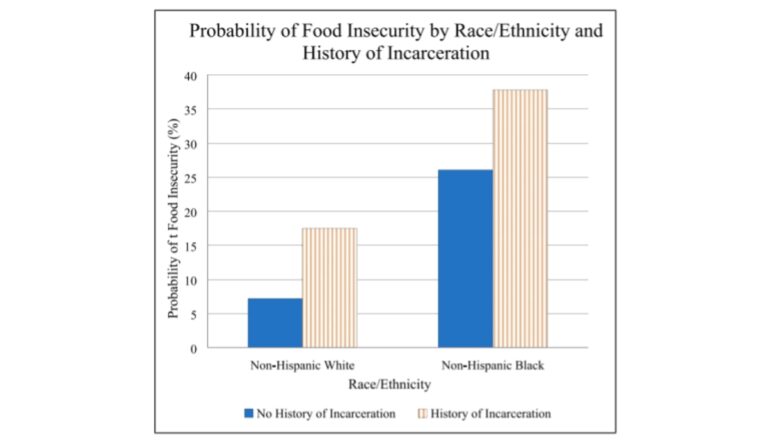Felonies and Food
Formerly incarcerated adults had an 83% increase in food insecurity compared to those who have never been in prison.

Read Time: 2 minutes
Published:
Returning to civilian life after being released from prison is always difficult. The unemployment rate among those with a history of incarceration is 27%, and those who do become employed are likely to earn 30% less than those who have never been in prison.
According to the U.S. Sentencing Commission (2017), 16.4% of those released from federal prison are 50 years or older. These older adults are likely to face even greater challenges, including possible homelessness, and often an increase in food insecurity.
Researchers Tamara Jones and Rodlescia Sneed analyzed data from the Health and Retirement Study (HRS) to determine the association between a history of incarceration and food insecurity among adults over age 51. Formerly incarcerated adults had an 83% increase in food insecurity compared to those without this history, most likely because formerly incarcerated individuals often earn less.
Additionally, as noted in the graph above, Black individuals who were formerly incarcerated had the highest probability of food insecurity. Jones and Sneed theorize that the stigma surrounding Black individuals, compounded by the stigma of a history of incarceration, impacts an individual’s access to community resources.
While there are social programs designed to reduce food insecurity, including the Supplemental Nutrition Assistance Program (SNAP), Meals on Wheels, and the Commodity Supplemental Food Program, those with a history of incarceration might not even be eligible for these benefits depending on their criminal history and where they live. In particular, several states have bans or partial bans on those with a felony drug conviction from accessing SNAP benefits. Yet even those eligible do not tend to utilize these services. Jones and Sneed recommend increasing efforts toward connecting formerly incarcerated adults to these social programs to reduce food insecurity.
Databyte via Tamara Jordan and Rodlescia Sneed. Food Insecurity Among Older Adults with a History of Incarceration, Journal of Applied Gerontology, 2023.



